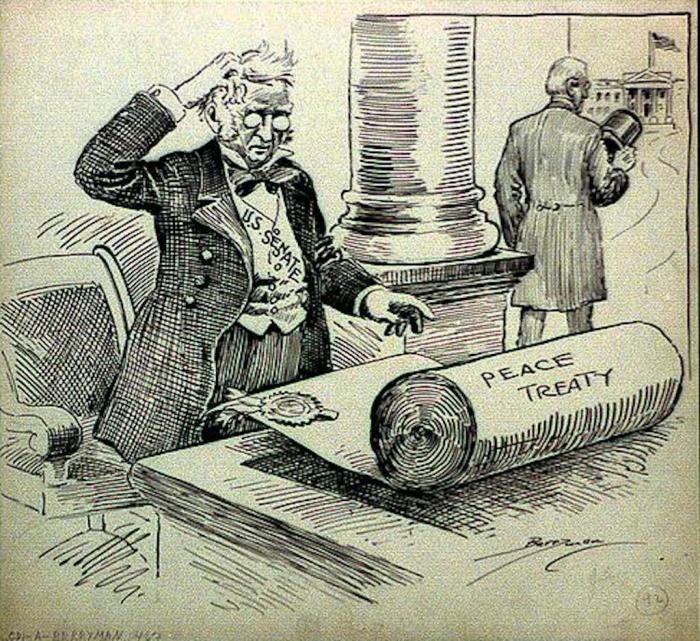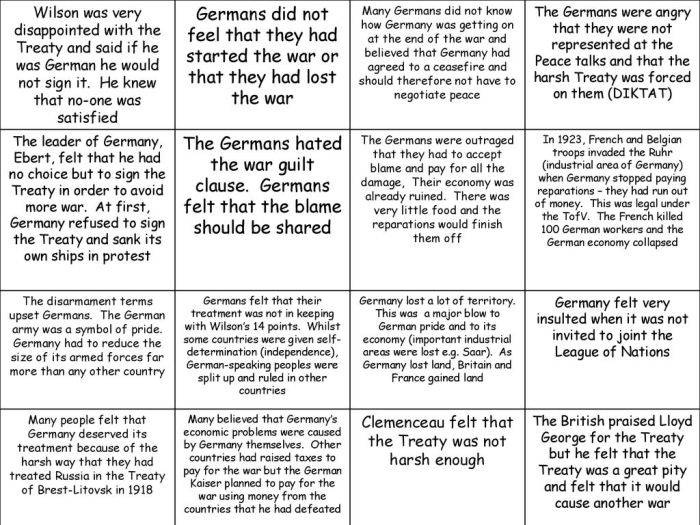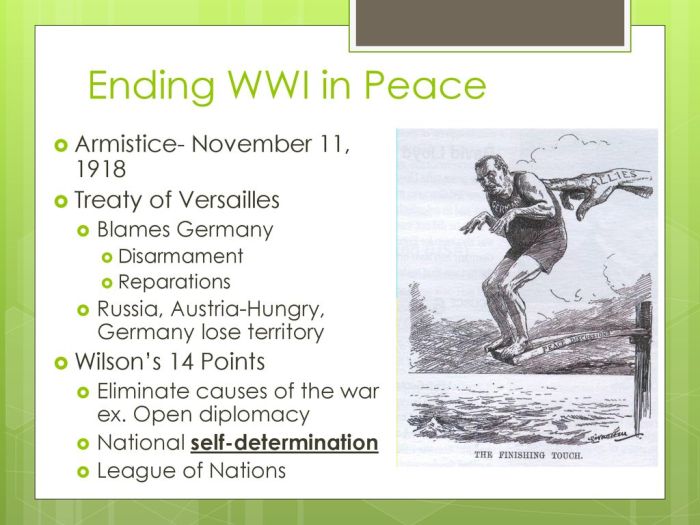Differences between 14 points and treaty of versailles – As the differences between the 14 Points and the Treaty of Versailles take center stage, this opening passage beckons readers into a world crafted with meticulous research and authoritative analysis. This exploration promises a reading experience that is both captivating and illuminating, shedding light on one of the most consequential agreements in modern history.
The 14 Points, a visionary proposal by President Woodrow Wilson, Artikeld a path towards a just and lasting peace following the First World War. In contrast, the Treaty of Versailles, negotiated by the Allied powers, imposed harsh penalties on Germany and redrew the map of Europe.
This essay will delve into the key similarities and differences between these two landmark documents, examining their impact on international relations and the legacy they have left behind.
Introduction

The 14 Points were a set of principles Artikeld by US President Woodrow Wilson in January 1918, proposing a framework for peace negotiations to end World War I. The Treaty of Versailles, signed in June 1919, was the primary peace treaty that formally ended the war.
This article examines the similarities and differences between these two historical documents, analyzing their impact and legacy on international relations.
Points of Comparison
Similarities
- Both documents sought to establish a just and lasting peace.
- They emphasized the importance of national self-determination and the reduction of armaments.
Differences
- The 14 Points were more idealistic and general, while the Treaty of Versailles was more specific and detailed.
- The 14 Points called for a League of Nations, which was established by the Treaty of Versailles.
- The Treaty of Versailles imposed harsh reparations and territorial penalties on Germany, which were not included in the 14 Points.
- The treaty created a sense of resentment in Germany, which contributed to the rise of Nazism.
- It weakened the League of Nations, which was unable to prevent the outbreak of World War II.
- The treaty’s harsh penalties on Germany violated the principle of national self-determination.
- The League of Nations was not as effective as Wilson had envisioned, as it lacked the authority to enforce its decisions.
- The 14 Points continue to influence international law and diplomacy, particularly in the areas of human rights and conflict resolution.
- The Treaty of Versailles remains a cautionary tale about the dangers of imposing punitive peace settlements.
Impact and Legacy: Differences Between 14 Points And Treaty Of Versailles
Consequences of the Treaty of Versailles
Deviation from the 14 Points
Historical Perspectives

| Perspective | Quote |
|---|---|
| Idealist | “The Treaty of Versailles was a betrayal of the 14 Points and the principles of self-determination.” – Harold Nicolson, British historian |
| Realist |
Modern Relevance

Contemporary Implications, Differences between 14 points and treaty of versailles
General Inquiries
What were the key differences between the 14 Points and the Treaty of Versailles?
The 14 Points emphasized self-determination, open diplomacy, and the reduction of armaments, while the Treaty of Versailles imposed reparations, territorial concessions, and military restrictions on Germany.
How did the Treaty of Versailles deviate from the ideals of the 14 Points?
The Treaty of Versailles failed to address the principle of self-determination for all nations, imposed punitive reparations on Germany, and established a League of Nations that was weaker than Wilson had envisioned.
What were the long-term consequences of the Treaty of Versailles?
The Treaty of Versailles contributed to German resentment, economic instability, and the rise of Nazism, ultimately leading to the outbreak of World War II.
